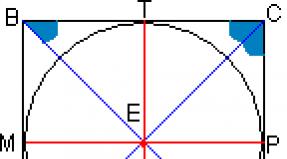Questions. Aching stomach pain - what can cause it? Why does my stomach hurt?
A man, a woman, a child is faced with abdominal pain. Why does it hurt inside abdominal cavity? This unpleasant condition can indicate improper nutrition, or it can signal more serious illnesses and possible referral for medical help.
The whole nature of the pain can say a lot. Sometimes there are aching, pulling sensations, and sometimes it burns, cuts, pricks. Sometimes unpleasant sounds come from the abdomen, tugs, twists. It is necessary to listen to pain in the abdominal region, all vital organs are located here, except for the brain.
Often, unpleasant sensations arise for a short period of time and disappear. For example, a person ate a lot or was very worried. Symptoms like these do not require treatment or medication. But stomach pains are not always so harmless. Sometimes they become a signal of serious changes inside and an emergency call.
At the place of localization of the pain syndrome, it is possible to say which disease caused the sensation. Why do you need to know this? To tell the doctor where it hurts, what pain. And the doctor will be able to correctly diagnose. But first it is necessary to be able to determine the accuracy of the pains, their location.
It is characterized by sharp, stabbing, dull, aching or bursting sensations. Able to give in the chest area. At the same time, the patient has nausea, vomiting, bloating and flatulence. All of the above are signs of gastritis or stomach ulcers.
Gastritis
This is a stomach disorder. Violation of the mucous membrane of the organ, when food cannot be digested normally. The patient feels general weakness.
Gastritis is today recognized as the most common disease. Among the patients of the gastroenterologist, children, men, women are observed.
Distinguish between acute and chronic gastritis. As a rule, the acute stage of the disease proceeds quickly. In the absence of treatment, it becomes chronic.
Unpleasant sensations in the upper abdomen accompany chronic stage gastritis, and the presence of other signs will make it clear that the gastric mucosa is damaged, treatment is required:
- Feeling of heaviness in the abdomen;
- Heartburn;
- Belching;
- Vomiting, nausea;
- Constipation or diarrhea may occur;
- Bloating, flatulence;
- Smell from the mouth.
Stomach ulcer
The inflammatory process, which remains untreated for a long time, creates wounds in the mucous membrane and in the walls of the stomach - ulcers. The main source of the disease, medicine indicates infection - Helicobacter pylori. Microorganisms, penetrating into the stomach, attach to the walls, penetrating through the mucous membrane. Gradually, the number of bacteria increases, which leads to the destruction of the mucous membrane and the gradual death of the affected tissues, a hole is formed in the organ.
The stomach is divided into several sections and each gives out its own pain symptoms, which help the doctor correctly diagnose and prescribe adequate treatment.

Myocardial infarction
Cardiac ischemia. The pain syndrome is disguised as an indisposition in the abdomen in the region of the stomach, with a return to the right hand.
Appendicitis
Inflammation of the process of the colon. Symptoms of appendicitis: incomprehensible and weak pains begin at the top under the spoon, passing to the right side. With such signs, it is better not to postpone and cause ambulance... It is forbidden to take medications to relieve discomfort, this will complicate the diagnosis.
What to do
In case of pain in the upper abdomen, if there is no need for emergency hospitalization, in the near future you will need to visit a doctor: a therapist or a gastroenterologist. Undergo examination, including gastroscopy. Today this is the only type of analysis that can show a reliable picture of the disease.
To eliminate spasms, targeted drugs are taken: No-shpa, Drotaverin.
Pain in the right hypochondrium
Accompanying the pain syndrome with a feeling of heaviness, nausea, vomiting, and at the same time gives it to the right shoulder. Complaints about acute, abrupt and sudden feelings, bloating is felt. The pain is also sometimes felt as constricting. These are suspicions on.
Biliary colic
When a stone formed in the gallbladder begins to move along the ducts and enters the bile duct, an intolerable unpleasant sensation arises. The reason that set the stones in motion:
- A feast with an abundance of fatty, spicy foods and alcoholic beverages.
- Strong emotional stress.
- Strong shaking when driving.
- Physical activity when the main posture is inclined.
Myocardial infarction can cause pain in the right hypochondrium if the patient already has cardiovascular diseases.
Biliary dyskinesia
The cause of pain in the right hypochondrium with discomfort, with dull pain and loss of appetite becomes. With dyskinesia, the motor function of the system is disturbed, carrying bile from the liver to the duodenum. As a result, the process of food digestion goes poorly.
A known disease that causes discomfort in the hypochondrium on the right - hepatitis A and hepatitis B, chronic hepatitis C (exacerbation stage), liver cirrhosis. It rarely happens if a preliminary diagnosis of the presence of diseases is made. But it is worth paying attention to the chair - when it is light, an unambiguous doctor's consultation and examination are required.
What to do
It is compulsory to call a doctor! Do not refuse hospitalization. Upon arrival at medical institution visit a surgeon, urologist and gastroenterologist. If the patient is a woman, it is necessary to inform about the pills taken, for example, contraceptives.
At home, be sure to follow a diet and take medications prescribed by your doctor. Exclude fatty, salty foods and flour products from the menu. Do not eat or drink for the next 12 hours. During and after treatment, try to control body weight.
With dyskinesia, hepatitis and cirrhosis - immediately make an examination by a gastroenterologist and hepatologist. Diet is imperative.
Pain in the lower abdomen on the right
Unpleasant strong sensations are given to the rectum, an increase occurs when walking - one should assume appendicitis. These symptoms are accompanied by nausea and fever.
Pain in the left hypochondrium
It is characterized as aching, shingles, the source is felt in the left hypochondrium - pancreatitis.
Pancreatitis
Additional symptoms occur: nausea, flatulence, dyspepsia. The reason is the intake of fatty, spicy food and alcoholic beverages... Mouth feels dry and tastes unpleasant. This is a disease that indicates a disorder in the function of the pancreas. The produced enzymes and pancreatic juice do not enter the small intestine for the main digestion of food, but remain inside the organ. There is a gradual processing of the tissues of the gland. The inflammatory process, without the effect of drugs, can spread to a large area inside the abdomen, affecting not one organ, but many. If the nearby organ is healthy and not sick, then in this situation, a violation of its functions is possible. Bleeding occurs inside, leading to peritonitis.
What to do
To get rid of pain, it is necessary to adhere to a diet, crush the food intake by 5-6 times. Do not consume alcoholic beverages, butter and fatty broths. If the pain syndrome increases, the condition worsens - call an ambulance and to the operating table.
Pain in the middle of the abdomen and waist
The nature of the pain is extremely strong, sharp, felt like a dagger, radiates to the lower abdomen, a frequent urge to urinate, especially after taking diuretic products.
Renal colic
Feelings have a wave-like character, periods of intensification are replaced by periods of decline. Symptoms occur when the kidney muscle tissue spasms. From the kidney, urine passes through the urinary tract and enters the bladder - this is during normal operation of the entire system. When a kidney stone enters the ducts, a blockage occurs and the fluid does not pass into the bladder, but accumulates in the ducts, which leads to spasms, to girdle pain along the waist with recoil on the leg corresponding to the damaged kidney.
Adnexitis
A female disease associated with an inflammatory process in the ovaries. The feeling of blunt injections is localized closer to the lower abdomen, intensifies with physical activity and hypothermia. The menstrual cycle is disrupted, the temperature rises for a long time, and sexual function decreases.
Osteochondrosis, if the pain syndrome radiates to the lower back and appendicitis (it inflammatory process gives everywhere and in all organs), has similar symptoms.
What to do
If the situation recurs, it is permissible to take pills to relieve pain, or antispasmodic... Do not postpone your visit to the urologist.
If the case appears for the first time, you need to do the following. You don't need to take pain relievers. Call an ambulance and visit a neurologist and surgeon in the hospital. The woman is additionally examined by a gynecologist.
Pain in the exact middle of the abdomen
There is bloating, the presence of excess gas, the stomach is seething, there is a aching feeling and short-term cramps. Possible causes of pain are banal overeating. The digestive organs cannot cope with the flow of food. As a result, a lot of gases are formed, moving along the intestinal tract and causing unpleasant sensations.
Dysbiosis and lactose intolerance can also cause cramps in the middle of the abdomen.
What to do
Many medicines containing enzymes are sold in pharmacies. They will quickly help to cope with a large amount of food and restore the intestinal microflora.
Pain under the navel
The nature of the pain cannot be accurately described, it is wandering with possible localization under the navel. In this case, bloating and alternating diarrhea and constipation are observed.
Irritable bowel syndrome
It is not a disease, but it gives a lot of unpleasant moments. Does not appear in one day, lasts for years. Symptoms appear different ways: constipation, diarrhea, nausea, etc. Medicine believes that this ailment refers to the psychosomatic conditions of the body. For example, feelings of fear can cause irritable bowel syndrome.
Viral infection or gastroduodenitis
Inflammatory processes on the mucous membranes of the digestive system caused by infections, and Helicobacter pylori is most common.
Pain in the very lower abdomen
With pain, characterized as pulling, discharge and fever appear, possibly the cause in the genitourinary system. In women, symptoms indicate problems with the internal genital organs.
In men
Paroxysmal pain is felt, radiating to the lower back, to the external genitals, to the groin, suprapubic and iliac regions. Localization of pain in the ureters. Difficulties with the urinary system are possible: kidneys, ureters, bladder, urethra.
- Pyelonephritis. Kidney disease associated with penetration into the organ of infection. Dull and aching lower back pain radiates to the groin, up the abdomen and down, the body temperature rises, appears headache... Sweating, nausea and vomiting increase.
- Urolithiasis disease. Pain in the lumbar region that extends to the lower abdomen and urinary tract... Even at rest, the pain syndrome does not subside. If there is nausea, vomiting and blood appears in the urine, then it is necessary to urgently call an ambulance team and see a urologist and a surgeon.
- Cystitis. There is aching pain and discomfort in the lower abdomen. Painful urination more than 20 times a day. In this case, cramps appear, the urine darkens, because blood, nausea, and vomiting appear.
Oncology Bladder causes blood in the urine, possible frequent visits toilet.
Among women
If a pulling pain is felt, it is an inflammation of the appendages, cystitis, endometriosis, or an ectopic pregnancy. Perhaps the cause is irritable bowel and constipation caused by it.
A commonplace cause of pain in a woman is periodic menstrual pain that constantly appears during the cycle and stops when it ends.
What to do
If the patient is a man, you will need to visit a urologist and proctologist.
If the patient is a woman, a gynecologist will help.
You need to be examined, tested. The doctor will draw up a plan for adequate treatment, then you should start taking active steps, observing a diet. You should always follow the doctor's recommendations.
Many people complain of abdominal pain but do not seek medical attention. Someone does not like doctors and hospitals, someone avoids diagnostic procedures. Some are even afraid to find out about a far-fetched terrible diagnosis and therefore delay the trip to the doctor for a long time. What diseases and disorders can cause discomfort or pain in a stomach?
Top Causes of Stomach Pain
Gallstones and cholecystitis
To diagnose diseases of the gallbladder, an ultrasound examination is prescribed, as well as blood tests.
Inflammation of the pancreas causes severe, burning pain in the middle or upper abdomen. Sometimes the pain radiates to the back and chest. A person develops nausea, vomiting, fever. Among the main reasons for the development of pancreatitis is alcohol addiction, as well as the formation of stones in the gallbladder. Pancreatitis often requires hospitalization.
As in the case of diseases of the gallbladder, if pancreatitis is suspected, blood tests and an ultrasound of the abdominal organs should be taken. For the appointment of appropriate studies, make an appointment with.
Inflammatory bowel disease can lead to scarring, abdominal abscesses (peritonitis), and intestinal obstruction. These severe changes manifest as abdominal pain along with diarrhea and rectal bleeding. Symptoms of IBD are chronic, but occur in cycles, flaring up and fading away. For this reason, it can be difficult to diagnose the disease.
IBD must be constantly monitored, because they lead to very serious consequences. Advanced stages of inflammatory bowel disease can lead to cancer.
Appendicitis
Inflammation of appendicitis is manifested by sudden pain in the center of the abdomen, which goes to the lower right side of the abdomen. Mainly, appendicitis worries children and young people. It is extremely dangerous to ignore the inflammation of the appendix, because it can burst and cause peritonitis.
If you notice symptoms of appendicitis in yourself or your loved ones, urgently call an ambulance!
Cancer disease
This disease can affect any of the abdominal organs - liver, pancreas, stomach, gall bladder, ovaries. Painful sensations, as a rule, appear at later stages. Other symptoms include loss of appetite and weight, persistent vomiting, and bloating.
- Diarrhea
- Nausea and vomiting
- Bloating
- Stool with blood and mucus
- Rash or itching around the rectum or vulva
- Feeling tired
- Weight loss
Lactose intolerance
Millions of people suffer from this type of food intolerance. Among her symptoms:
- Moderate abdominal pain
- Flatulence
- Belching
- Diarrhea

There is only one solution - complete or partial rejection of dairy products.
Intolerancegluten
Gluten is a protein found in wheat, barley and rye. In people with intolerances, this protein damages the walls. small intestine... As a result, its ability to absorb nutrients obtained from food is lost.
A person with an intolerance has a stomach ache, flatulence and a feeling of fatigue. The most severe form of gluten intolerance is called celiac disease.
Spine diseases
Up to 62% of patients with diseases of the spine suffer from abdominal pain, bloating, constipation, hemorrhoids. Such data were provided by American experts from the University of Medicine in 2012.
Some patients who do not suffer from organ diseases gastrointestinal tract, complain of abdominal pain due to orthopedic problems. If you belong to this category of people, an experienced person will do everything possible to improve the health of your spine. Perhaps it is the problems with the spine that cause pain in the abdomen.
Stress and depression
Constant stress can also cause abdominal pain. If a person develops depression, they are more likely to experience irritable bowel syndrome.
When to seek medical attention:
- Feeling of discomfort in the abdomen lasting 1 week or longer
- Abdominal pain that does not subside within 24 to 48 hours or gets worse
- Pain with nausea and vomiting
- Bloating for more than two days
- A burning sensation while urinating or frequent trips to the toilet
- Diarrhea that lasts several days
- Pain in the abdominal region with an increase in temperature
- Prolonged vaginal bleeding
- Unexplained weight loss
In what cases it is necessary to call the doctor immediately:
- A man suffers from cancer and has a stomach ache
- Constipation accompanied by vomiting
- Vomiting blood or blood in your stools
- Black or tarry stools
- Sudden, sharp abdominal pain
- Pain between the shoulder blades accompanied by nausea
- A sensitive and painful belly to touch, or vice versa - a hard and hard belly
- Pain in the abdomen during pregnancy
- Recent abdominal trauma
Why is it important to seek help as early as possible?
Almost each of the diseases considered does not just cause pain and unnecessary worries.

If medical attention is not received on time, serious and sometimes life-threatening complications can develop. Do not delay, make an appointment through or call the phones listed at the top of the site.
Sources:
- 18 Reasons Why Your Stomach Hurts, Health.com,
- 5 Reasons Your Stomach May Hurt, The Johns Hopkins Hospital,
- Abdominal Pain, U.S. National Library of Medicine,
- Abdominal Pain, Patient.info,
- Irritable Bowel Syndrome, U.S. National Library of Medicine,
- Symptoms & Causes of Diverticulosis and Diverticulitis, The National Institute of Diabetes and Digestive and Kidney Diseases,
- Endometriosis, Mayo Clinic,
- E. Ebert, Gastrointestinal Involvement in Spinal Cord Injury: A Clinical Perspective, University of Medicine and Dentistry New Jersey, Robert Wood Johnson Medical School,
- Intestinal parasites, University of Maryland Medical Center (UMMC).
There are many factors that can trigger severe abdominal pain. Regardless of the location, nature, intensity of pain, as well as the presence of accompanying symptoms, abdominal cramps indicate a malfunction in the functioning of the digestive tract. To avoid serious pathology, exacerbation, you should seek medical help in time if acute symptoms are detected.
Etiology
Any pain signals that a malfunction has occurred in the body.
Abdominal cramps accompany various diseases... You should not self-medicate and, if pain is found, eliminate them symptomatic drugs... Competent treatment implies a preliminary determination of the cause of the development of pain. A similar diagnosis can be carried out by a doctor using laboratory and instrumental studies. Abdominal cuts can vary in intensity and duration, which should be reported to your doctor.
As a rule, several symptoms appear at the same time. Sharp pains are accompanied by fever, nausea, vomiting, diarrhea and other signs of the disease. In most cases, a similar clinical picture is observed with intoxication. It is important to understand that dyspeptic syndrome does not manifest itself for no reason. It accompanies a more serious pathology of the gastrointestinal tract. In addition, they also show , which has its own reasons and treatment.
The main causes of pathology
There are several groups of provoking factors:
Stomach
Painful sensations are manifested in the event of an exacerbation of peptic ulcer and gastritis. Symptoms: lack of appetite, diarrhea and nausea. Acute nature of the incisions located in the navel, as well as in the upper part of the peritoneum, prevails. The culprit for this discomfort is impaired synthesis function. of hydrochloric acid... There are several types of gastritis, manifested by similar colic in the navel and stomach.
The main types of pathology:
- erosive gastritis - an exacerbation occurs after alcohol consumption, with an unbalanced and unhealthy diet, smoking, abuse of spicy and smoked food;
- bacterial species - formed as a result of active reproduction of a pathogenic microorganism, namely Helicobacter Pylori;
- stressful type - is the result of a psychological breakdown and an unstable emotional background;
- eosinophilic - an allergic reaction is considered the culprit;
- viral gastritis - appears due to exposure to a pathogenic microorganism that has penetrated the digestive system;
- trophic form - develops against the background of thinning of the mucous membrane.
Digestive system
Digestive system related etiology:
An exacerbation of pancreatitis manifests itself in the area of the stomach. The main signs of pathology: vomiting, flatulence, bloating, nausea, diarrhea, or difficulty defecating. Symptoms resemble appendicitis. An urgent need to seek medical help. Also, with such a disease, and may be present.
Cramps occurring in the stomach and in the navel area, which descend into the lower right side, signal an inflammation of the appendix. If such symptoms appear, especially if it is accompanied by an increase in temperature, you should immediately call an ambulance.
Also, abdominal cramps are observed with irritable bowel syndrome. Concomitant signs are: diarrhea or constipation, flatulence, frequent urge to defecate. Consultation of a gastroenterologist and the appointment of a course of therapy are required. During the period of treatment, you should adhere to the principles of dietary nutrition.
If the pain in the navel and stomach increases after eating, most likely there are disturbances in the outflow of bile. In simple words, the content duodenum does not go further and is thrown back into the gastric cavity. A similar clinical picture indicates duodenogastric reflux. This pathology develops due to atrophy of the mucous membrane that produces digestive enzymes.
Spilled pain, covering the entire abdomen, may accompany malignant tumor... Basically, stomach cramps appear in the epigastric region, after which they touch several adjacent organs.
Sharp and severe cuts may indicate helminthiasis. Clinical manifestations: anemia, loose stools or difficult bowel movements, and restless sleep. Painful sensations are localized in the umbilical zone. Basically, these signs bother children. An urgent diagnosis and therapy is required.
Genitourinary system

In some cases, abdominal cramps indicate a disorder of the reproductive system. Similar symptoms are observed in men with inflammation of the bladder, prostate adenoma. If the pain syndrome manifests itself on an empty stomach and disappears after eating, most likely it is gastritis or peptic ulcer disease.
Cramps in the stomach can be troublesome in early pregnancy, which may indicate the possibility spontaneous abortion(miscarriage). This phenomenon can be provoked by an unstable psychological background and emotional stress. If pain in the lower abdomen is found, a woman should immediately call an ambulance.
Severe pain is observed due to hormonal changes in the body. Also, similar symptoms are possible during the formation follicular cyst, pathology of the ovaries and appendages, ectopic pregnancy.
Secondary causes of pathology

Cutting pain in the abdomen does not always signal the presence dangerous diseases... However, in any case, you need to be attentive to your body and its signals. Such symptoms may indicate various malfunctions in the body and non-serious pathologies. The main provoking factors of cutting sensations in the gastrointestinal tract:
Intestinal infection
In the presence of severe pain in the lower abdomen, which manifests itself against a background of nausea, diarrhea, vomiting, elevated temperature body, you need to see a doctor. Intestinal infection can be dangerous. Pathology needs detailed research, therapeutic therapy and diet. Proper diagnosis is very important to help determine the type of causative agent of the disease. Knowing what triggered the disease, the doctor will be able to prescribe the correct treatment.
Worms

Inflammation of the gallbladder is accompanied by painful, cutting sensations. Most often, the cause of the disease is an infection. Discomfort is observed in the right side. Unpleasant sensations appear several hours after eating, especially fatty, spicy, fried and smoked foods. Symptoms can be felt against the background of stress, physical exertion.
Gynecology
Abdominal pain in women can signal an ectopic pregnancy, miscarriage. In the case of an ectopic pregnancy, the fertilized egg stops in the tube before reaching the uterus. During the growth of the embryo, stretching occurs, the tube may rupture. As a result of this phenomenon, the egg cell penetrates into the abdominal cavity, which is accompanied by excruciating pain. More often than not, the tube does not rupture, as the pain and bleeding force the woman to see a doctor.
Follicular ovarian cyst
This disease is accompanied by painful sensations in the lower abdomen. In each menstrual cycle follicles ripen, one of which is needed in order for an egg to mature in it. When it bursts, the egg leaves it. If this does not happen, the egg and follicle form a cyst that grows in size. There is profuse bleeding, intense painful syndrome.
Specificity of medical therapy

Most people who begin to have stomach ache take painkillers and antispasmodics on their own. In some situations, this is allowed. However, when it comes to appendicitis, pancreatitis and other diseases, medicines don't help. What's more, pain medications lubricate clinical picture and make it difficult for doctors to make a diagnosis. It is recommended to call a doctor. Before his arrival, the use of any food is prohibited. You can lie down, if you want to drink a small amount of water.
The following medications will help to relieve a one-time, short-term pain:
- From strong cuts, localized in the stomach, are prescribed drugs such as: No-shpa, Bruskopan and Besalol. They have an antispasmodic, antiseptic effect. Perfectly absorbed into tissues, inhibit the development and reproduction of pathogenic microflora.
- In case of ulcers, diseases of the pancreas, De-Nol, Epicurus and Omez will help to stop the pain syndrome. These medications have bactericidal activity relative to Helicobacter Pylori, and also inhibit its enzymatic activity.
- If cutting pain in the stomach is the result of indigestion proceeding against a background of low acidity, you can take Festal, Pancreatin, Creon, Mezim. They contain enzymes with a slight adsorption effect. Suitable for the treatment and restoration of the activity of the digestive tract.
- When the culprit of the malaise is gastritis with high acidity, accompanied by pain, heartburn and bitter belching, Maalox and Gastal are prescribed.
Cutting pains in the stomach are a common problem in many diseases. The correct solution in this situation is to consult a doctor and establish the etiology of the ailment in order to start competent treatment in a timely manner.
Severe abdominal pain in a pregnant woman. The abdominal muscles are tense and the abdomen is hard as a board. Abdominal pain with diarrhea and / or vomiting. Most often occurs in children under 6 years of age, but can cause acute pathology in adults.
Stomach hurts: 14 reasons to call an ambulance. When to call an ambulance. Abdominal pain requires an ambulance call in the following cases (The Emergency Rule states: "Any woman is considered pregnant until ...
Abdominal pain during pregnancy: stomach, intestines or uterus? When the stomach hurts. Pain in the abdomen: in what cases urgently consult a doctor. Stomach hurts: 14 reasons to call an ambulance. Doctor's recommendations. heartburn, stomach discomfort, bloating or ...
The elder and dad leave for the Crimea at night, and the child's stomach worries for a day (he only told me last night when he came from a walk, walks in the courtyards with friends all day, gave him linex and chloramphenicol and continue to give).
My daughter has a stomach ache for the third day. No fever, no diarrhea, no vomiting! Medicines were given, anyway she says that it hurts. Yesterday evening I called an ambulance and took me to the Tushino hospital. They took blood - leukocytes are normal. On ultrasound, the lymph nodes of the abdominal cavity are enlarged. Post-infectious mesenteric infection was installed. They wanted to put it in an infection - I refused.
Brother after the first chemistry course. Fourth day diarrhea, nausea, belching. About the regional dispensary we will keep silent obscenely, the doctor said - to the morgue: ((((() Only bactisubtil came to my mind, because it was often taken and I remember that it is recommended after chemotherapy and irradiation. What else from medicines? Omez? And from sedatives? About food more -Less clear, lean protein, often in small portions.
My stomach hurts. ... I find it difficult to choose a section. Medicine and health. The second day my stomach hurts, so I can’t even straighten up. At the same time, there is also bitterness in my mouth. I didn't go to the doctor today, I thought it would pass, but my stomach hurts: 14 reasons to call an ambulance. Doctor's recommendations.
Check out other discussions: Stomach hurts: 14 reasons to call an ambulance. When to call an ambulance. Abdominal pain requires an ambulance call in the following cases (The Rule of the Emergency Room states: "Any woman is considered pregnant until proven otherwise.")
on a period of 29-31 weeks, maybe even earlier, she began to experience pain "there" when getting up from a lying position, sometimes I can't even turn around, move the pelvis, it hurts. Walking (not fast, of course, it is generally excluded from the pain) also hurts. Anyone else suffering from this bullshit?
I have a stomach ache! Abdominal pain in a child possible reasons... In a conversation with a pregnant woman, the doctor always finds out whether she is bothered by pain in the lower abdomen, in the lumbar region or sacrum. Stomach hurts: 14 reasons to call an ambulance. Doctor's recommendations.
Abdominal pain is the most common reason for visiting a doctor in pediatric practice. There are a lot of diseases in the picture of which there are pains in the abdomen. Both are about the eldest, 6 years old. Stomach hurts: 14 reasons to call an ambulance. Doctor's recommendations.
After the class (active, 45 minutes), I came out sluggish, complained of abdominal pain, nausea, weakness. It lasted about 30 minutes. What can it be and can I try again or definitely refuse to practice? Could it be chlorine poisoning (she swallowed water ...
Stomach hurts after Rotovirus. What can you serve for stomach pain? We begin to eat little by little after 3 days of hunger, but everyone has the same symptoms, everyone is cheerful and cheerful, but periodically twists the stomach and stool 2-3 times a day. Girls who have babies recently ...
Yesterday I lay down to sleep with my daughter in the afternoon, woke up with a pain in my stomach, went (forgive me for the details) to the toilet, there I already felt a growing rustling noise in my ears. I tumbled into the corridor and slipped quietly along the wall (legs broke).
Fever and abdominal pain. Yesterday we had a fever of 38 and complains of a stomach ache, farts very much. We have the same symptoms, and the doctor also gave Orvi, prescribed Arbidol, Gripferon drops, and Bifidum bacterim forte, for diarrhea and for recovery ...
And the attacks were with vomiting, and also white diarrhea, the ambulance all the time tried to attribute jaundice and take it to the infectious diseases clinic, and we refused. Similar attacks of severe headache are not uncommon. I adhered to a diet, there was no strong discomfort for this.
Stomach pain can sometimes be so severe, due to its frequency or severity, that it can significantly reduce the quality of life.
For those patients who have a similar pain syndrome in the stomach, it is important to find out the causes of abdominal pain in a timely manner and carry out necessary treatment to prevent possible complications and negative consequences.
To do this, you need to visit a doctor who will tell you why your stomach hurts and how to get rid of this symptom.
Causal factors and symptoms
The abdomen is an anatomical area bounded by the lower edge of the ribs and the diaphragm above, and pelvic bone below.
Although abdominal pain may appear in some of the tissues surrounding the abdominal cavity, abdominal pain is used to describe the pain that develops in the abdominal organs.
Painful sensations are often nonspecific and can be triggered by a variety of factors.
There are two different types pain:
- Sharp.
- Chronic.
Acute abdominal pain is characterized by a sudden and severe attack, often forcing patients to seek immediate emergency medical attention, where many of them may require urgent surgical treatment.
Chronic pain can be described as less severe, more prolonged in time, sometimes dull, and occurs intermittently, that is, intermittently.
It is important to note, however, that mild pain does not necessarily equate to less serious illness or condition.
In general, abdominal pains that are farther from the center often indicate more serious problems than those that are located near the center (but this is not always the case).
Usually continuous and progressive painful sensations also indicate the appearance serious illnesses underlying this symptom.
Chronic pain syndrome, which has an undulating character, lasts only a few minutes and does not bother a person much, are less likely to be just as serious.
The type and location of pain can help the treating physician find probable cause symptoms. The intensity and duration of pain must also be considered when making a diagnosis.
Several general characteristics pains are:
- The nature of the pain (how pain in the abdomen is felt). It can be sharp, weak, stabbing, spasmodic, cramping. Many other types of soreness are also possible.
- The duration of the pain (how long the stomach and stomach hurt, and why the pain does not stop). Abdominal pain can be short-lived, lasting a few minutes, or persist for several hours or longer. Sometimes severe abdominal pains are observed for a while, and then their intensity decreases.
- Factors causing pain(causes). It can get worse or better under certain circumstances, such as getting worse after eating, going away after having a bowel movement or vomiting, or getting worse when lying down.
Severe abdominal pain, combined with a burning sensation or other sensations, can be caused by various diseases.
The severity and duration of pain may depend on the underlying disease. Some of the conditions that can cause soreness in the abdomen are described below.
Gastroesophageal reflux disease is a disease commonly known as acid reflux associated with chest discomfort and pain in the upper abdomen.
Symptoms may include difficulty swallowing, nausea, sore throat, heartburn, and coughing. The stomach with GERD can be intensely painful and constantly disturb a person.
People with stomach ulcers may experience a burning sensation or stitching pains in the stomach.
Pain can cause more abdominal discomfort when a person is hungry. Symptoms include upset stomach, gas, vomiting, heartburn, nausea, and dark stools.
A hernia in the abdomen, known as a hiatal hernia, can also cause abdominal discomfort.
Symptoms associated with this type of hernia are tightness in the upper abdomen, nausea, heartburn, difficulty swallowing, and continuous hiccups.
Severe pain from the navel to the lower right abdomen is sometimes a sign of appendicitis.
Symptoms may also include nausea, loss of appetite, constipation, swelling, severe discomfort when coughing or sneezing, and burning.
A burning sensation during urination and discomfort in the lower abdomen can be signs of various urinary tract infections.
Some other symptoms associated with a UTI are chills, frequent urination, burning pain in the stomach and abdomen, blood in the urine, fever, and bad smell urine.
Severe and dull pain that occurs simultaneously in the back and abdomen usually indicates the formation of kidney stones.
The pain associated with kidney stones is excruciating and unbearable. The manifestations of the disease also include blood in the urine, frequent urination, nausea, cloudy urine, fever, and vomiting.
An ectopic pregnancy is a complication that can also cause severe burning, pain and discomfort in the stomach. This condition is usually diagnosed in the first trimester of pregnancy.
Symptoms consist of abnormal vaginal bleeding, low blood pressure, nausea and vomiting.
Sudden or progressive pain in the upper, posterior, and lateral parts of the abdomen may be a sign of pancreatitis.
Other symptoms include vomiting, tenderness in the abdomen, nausea, fever, and a fast pulse.
Some other illnesses associated with abdominal pain or discomfort in this area include Crohn's disease, food poisoning, constipation, dysentery, menstrual cramps and viral infections.
The pain in the abdomen varies greatly, from mild soreness to unbearable. At the same time, severe stabbing pains in the abdomen can be the result of something fairly harmless.
For example, most people know that stomach pain is combined with increased gassing can talk about banal overeating or eating fatty foods, as a result of which discomfort and flatulence are observed.
On the other hand, even some serious problems, such as celiac disease or colon cancer, do not show too many symptoms in the early stages.
In this regard, one should not judge stomach problems solely by the severity of pain in the abdominal cavity, that is, on how intensely the stomach hurts.
Severe, persistent pain is always sufficient reason to seek immediate medical attention.
However, in the case of mild to moderate pain, attention should be paid to additional manifestations and symptoms:
- Abdominal discomfort that lasts a week or longer.
- Bloating in the abdomen.
- Flatulence that lasts longer than 2 days and is not related to menstrual periods.
- Diarrhea that does not go away for more than 3 days.
- Feverish with pain.
- Constant abdominal pain that develops during pregnancy.
- Long-term poor appetite.
- Soreness in the abdomen
- Unexplained weight loss.
- Black, tarry stools.
Signs that a person urgently needs to visit a doctor consist of the appearance of lumps in the abdomen (while it hurts regularly), fever, bloody diarrhea or vomiting, inability to defecate normally, and stomach pain lasting several hours and accompanied by vomiting.
Diagnostic and therapeutic methods

Treatment, as a rule, is best to start with a consultation with the attending physician who is able to carry out the entire process of diagnosing the origin of pain.
Depending on the symptoms and the diagnosis, the doctor will consider the primary risk factors (that is, possible ulcers, infections, appendicitis), and then the secondary ones (ovarian cancer, etc.).
When the stomach hurts constantly, there is a high probability of referral of the patient to the ward. emergency care, for emergency care.
The doctor will ask specific questions to try to determine what is causing the patient's stomach pain, as well as why the stomach hurts.
Some of them may seem unrelated to the patient's current condition, but it is important to try to answer them as fully as possible. Answering these questions can help the doctor find the true cause of the patient's pain more quickly and easily.
The physical examination will include a thorough examination of the patient's abdomen, heart, and lungs to pinpoint the source of the pain.
The doctor sometimes does a rectal exam to check for blood in the stool or for other problems, such as internal hemorrhoids.
When the patient is a man, the doctor additionally checks the condition of his penis and testicles.
When the patient is a woman, the doctor often examines the pelvis to check for problems in the uterus, fallopian tubes, and ovaries.
The doctor also often pays attention to the patient's eyes if they turn yellow (jaundice) and examine oral cavity to make sure the patient is not dehydrated.
In addition, laboratory tests can determine the causes of abdominal pain.
Combined with information obtained from patient interviews and physical examinations, blood or urine tests will be required to determine an accurate diagnosis.
In particular, an increase in the white blood cell count may indicate an infection or a simple stress response from pain and vomiting.
A low hemoglobin level may mean the patient is bleeding internally.
Blood in the urine, which cannot be seen with the naked eye, suggests that the patient has kidney stones.
Other blood tests, such as liver and pancreatic enzymes, can help determine which organ is causing the pain (but do not indicate a diagnosis).
X-rays of the patient's abdomen can be helpful, but not always necessary.
On rare occasions, an x-ray shows the presence of air outside the intestines. This means that its wall has been torn or perforated. X-rays can also help diagnose bowel obstruction. In some situations X-rays may show kidney stones.
An ultrasound examination is a painless procedure, useful for detecting some of the causes painful sensations in a stomach.
An ultrasound scan can be performed when the doctor suspects the patient has problems with the gallbladder, pancreas, liver, or reproductive organs in a female.
The ultrasound also helps diagnose kidney and spleen problems or major blood vessels that run from the heart and supply blood to the lower half of the torso.
Treatment involves the patient taking antacids such as Almagel, Maalox, or Pepto Bismol, which can reduce some types of pain.
Activated charcoal tablets can also help with early stage painful sensations.
Acetaminophen- a drug that can relieve mild pain and moderate... However, this medication should be avoided if liver disease is suspected.
Patients should exclude the use of Aspirin and Ibuprofen if they suspect a stomach ulcer or bowel disease, as these drugs can only aggravate the pain in this case.
The patient is also given an intravenous solution of sodium chloride. The doctor may ask the patient not to eat or drink for a while until the cause of the pain is clarified.
This is done in order to avoid the worsening of certain diseases (for example, eating can complicate the condition in the presence of a perforated ulcer) or to prepare the patient for possible surgery (an empty stomach is necessary when general anesthesia is not required).
If the patient's stomach hurts due to the presence of an infected internal organ, for example, appendicitis or gallbladder, the patient urgently needs to go to the hospital, as he will need hospitalization, medical supervision and possibly surgery.
Bowel obstruction may sometimes also require surgery, depending on what is causing the obstruction, how serious the complication is, and whether there are additional health problems.
If the patient's stomach hurts due to a perforated organ (intestine or stomach), he will need immediate surgery and be taken directly to the operating room.
In general, many types of pain sensations go away on their own without surgery and without determining the cause, and most people only need relief from their symptomatic manifestations.
Surgical causes of pain in the abdomen are characterized by different results, which are based on the complexity of the condition and the main pathology.
If the patient has mild appendix inflammation or small gallstones, he should recover from surgery without any long-term problems.
If the person has a ruptured appendix or an infected gallbladder, recovery takes longer.
Abdominal pain from a perforated ulcer or a blocked bowel may mean major surgery and a long recovery process are likely in the near future.
If you have problems with large blood vessels, such as rupture or blood clots, the prognosis may be less reassuring.
In general, the older a person is in age and the more serious his problem is, the worse the result can be expected in the outcome of the pathology.
Useful video



















